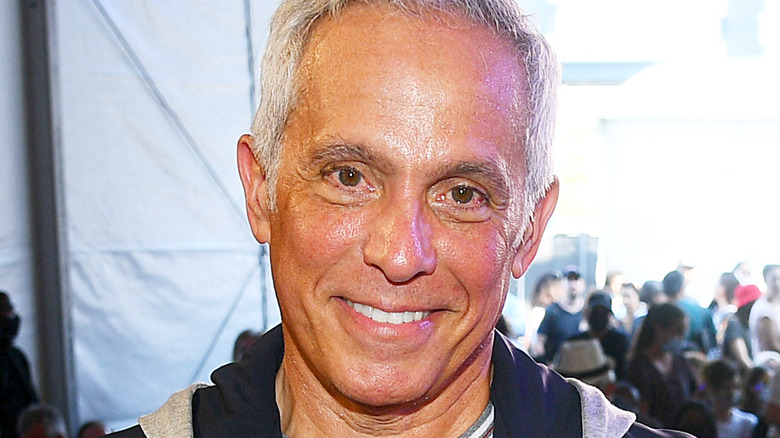Geoffrey Zakarian Revealed His Secret Ingredient For The Perfect Omelet
Whipping up the protein-packed breakfast staple may seem simple, yet there are quite a few mistakes everyone makes when making omelets. Some of these have to do with your technique, such as getting your pan way too hot and overcooking the bottom of your omelet or using a pan that's too large, as per Bon Appetit. Other potential missteps involve the ingredients you choose to incorporate, like using milk or cream or adding way too much of the mix-ins — more is not necessarily better.
However, even if you've got all the basic omelet rules mastered and you're turning out decent-quality omelets on the regular, there's one added tip from chef and television personality Geoffrey Zakarian that might be a game-changer. Zakarian shared the tip while he was preparing a round of omelets for the participants on his Food Network show "Big Restaurant Bet," in which he's offering culinary entrepreneurs the chance to compete for a $250,000 restaurant contract so they can see their dream restaurant come to life.
Food Network posted a clip on Twitter of the chef preparing an omelet and he explained the unique challenge of the dish — the eggs have to be soft yet firm, a texture that can be somewhat challenging to achieve. Luckily, Zakarian gave a simple tip.
The science of why this tip works
Geoffry Zakarian advised that you should add a pat of cold butter while cooking your omelet. It turns out that this is all about the science — as Zakarian explained in the Twitter clip, the addition of the cold butter ensures that the albumen in the eggs doesn't thicken up too much.
The albumen is found in the egg whites, which make up a large portion of your omelet. According to Cook's Illustrated, when an egg cooks, the proteins in those egg whites begin to bond together, which is what can transform your omelet from light and fluffy to rubbery and somewhat dense. When you add in the butter, it cloaks all those proteins in a layer of fat and essentially stops those bonds from forming, and consequently stops that undesirable rubbery texture from forming.
As for Zakarian's qualifier that the butter should be cold, there's a reason for that as well, and it's more straightforward than you might think. The key is in how the butter melts. Warm or room temperature butter that melts the moment it hits the pan may only reach small portions of your omelet, getting incorporated somewhat unevenly. If you start with chilled butter, as per Zakarian's recommendation, or even frozen butter, as Cook's Illustrated champions, the butter will coat all your egg proteins more evenly, resulting in a uniformly fluffy dream omelet.

